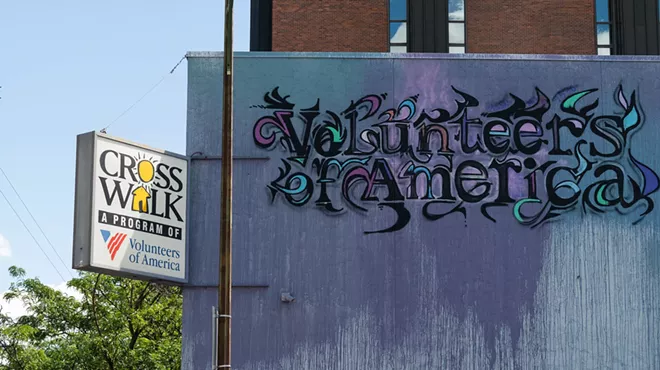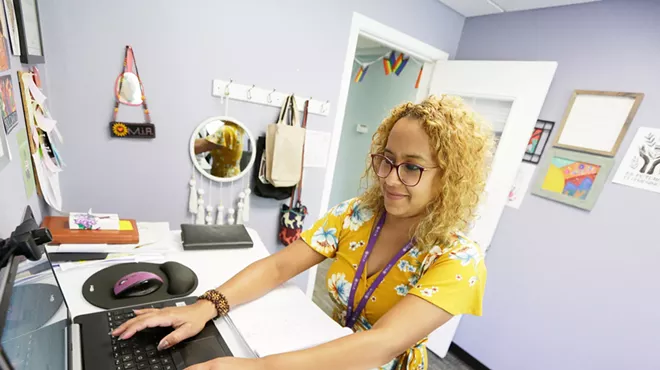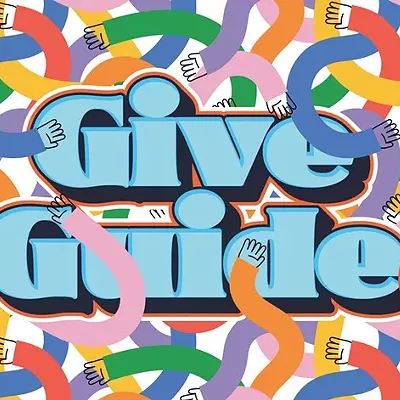
David Owan is no stranger to the byzantine depths of the American health insurance system.
When he was working as a physical therapist at Youthful Horizons Therapy in the early 2010s, Owan recalls families regularly coming into his office in tears — wondering how they could possibly afford therapy for their kids while also paying rent and putting food on the table.
"I did not think that in this country, the United States of America, people should have to make those choices." says Owan. "The richest, most powerful country in the world, and we couldn't take care of the kids."
Regular physical, emotional or speech therapy sessions are often a medical necessity for kids with special needs. But many insurance plans don't cover such sessions. Or they charge outrageous co-pays and deductibles. And it's not just therapy. A simple piece of equipment — like an exercise ball or crash pad for a child on the autism spectrum — can also be prohibitively expensive for many families.
Kelly Lynch was noticing the same problem in her work as a pediatric physical therapist.
"As a therapist, you're the one writing a justification letter saying this is what this kid needs to thrive right now," Lynch says. "And so when you keep getting 'No, no, no, we're not going to pay for that,' it's really frustrating."
Families can appeal the insurance company's decision, but that process sometimes drags on for years, Lynch says. Families with special needs children in crucial developmental phases of their life can't afford to wait that long. They need care today.
United by shared frustration, Lynch, Owan and a group of other medical professionals and community members came together to found Elevations, a Spokane-based nonprofit that gives grant funding to families struggling to pay for their children's therapy.
"I literally just got tired of parents coming into my office in tears," Owan says.
During its first grant cycle in 2013, Elevations gave away $6,000 to families. The nonprofit has been growing ever since. Owan, who now serves as Elevations' treasurer, says the organization has three annual grant cycles and gives away about $120,000 a year. It serves families who have children with a range of needs, including conditions like autism, Down syndrome, sensory processing disorder and apraxia.
HOW YOU CAN HELP
To donate to Elevations, call 509-385-2116 or go to elevationsspokane.org/donate. The organization is always looking for volunteers, and is currently seeking auction item donations for the Oct. 28 Ghost Ball fundraiser at the Spokane Convention Center.
Lynch, who serves as Elevations' president, says the grant application process is intentionally streamlined and straightforward. They don't ask for financial information. Families are already overwhelmed by paperwork, and Elevations doesn't want to add more hoops to jump through.
Owan says Elevations has 85 applications that the grant committee is reviewing this cycle. He expects that the organization will be able to help the vast majority of them cover at least part of their health care expenses.
The most difficult part of the work, Owan says, is not having enough money to help everybody with all of their expenses. Elevations is only able to give a max of about $1,200 per grant cycle, but deductibles for regular therapy visits can soar above $6,000, Owan says.
"We see some pretty tragic cases," Owan says. "And you just want to help people."
It's not just the child with special needs who suffers when a family becomes financially burdened by health care, Owan says. Many of the families they work with have multiple children who have to sacrifice things like soccer or gymnastics so the family can afford care for the sibling with special needs.
"It really affects the whole family when a child has a disability, and our goal is to really help the whole family," Owan says.
The work is challenging, but the most rewarding part, Owan says, is when a family Elevations has been helping for several years stops sending in applications. It usually means the child no longer needs therapy because they've met their goals and caught up with their peers. Elevations often receives letters of gratitude from those families. Some even come back and volunteer with the organization.
Elevations doesn't receive any government funding. Most of its money comes from donors and grants from other organizations. Their biggest fundraising source is the annual Ghost Ball — a Halloween party with auctions, costumes and other fun, spooky stuff.
Owan says his goal is to see Elevations grow into a million-dollar organization. The nonprofit is currently limited to Spokane County, but Owan says he'd like to expand into North Idaho and other parts of Eastern Washington in the future.
"We just want the community to know that we're available as a funding source," Lynch says. "And even though we can't pay for everything that a family might need, we would like to help." ♦
OTHER WAYS TO HELP PEOPLE BE HEALTHY
ASHLEY HOUSE NORTHWEST is a Washington-based organization formed in 1989 organization that provides health care in group home settings for medically fragile children. Last year, the organization opened a location in south Spokane, called Ashley House NW. The goal is to provide a welcoming, homelike environment for children, teens and young adults who would otherwise require a long-term hospital stay. People interested in volunteering can contact jallison@ah-nw.org.
More information at ah-nw.org
THE NATIVE PROJECT is an urban health clinic that provides medical, dental, behavioral health and other services. Many of the nonprofit's clients are native American, but they also serve non-native people. The NATIVE Project operates a clinic in Spokane's West Central neighborhood and focuses on a "patient-centered care" model that centers on physical, mental and spiritual well-being. The organization has a sliding fee scale program that helps people who are uninsured or underinsured afford services.
More information at NativeProject.org
CHAS HEALTH was founded in 1994 and has since grown to include five clinic locations across Spokane. The organization also has clinics in Moscow and Lewiston, Idaho. The nonprofit health center focuses on providing dental, medical and pharmacy services on an affordable, sliding fee program. Last year it served 102,271 patients in the Inland Northwest.
More information at chas.org




























